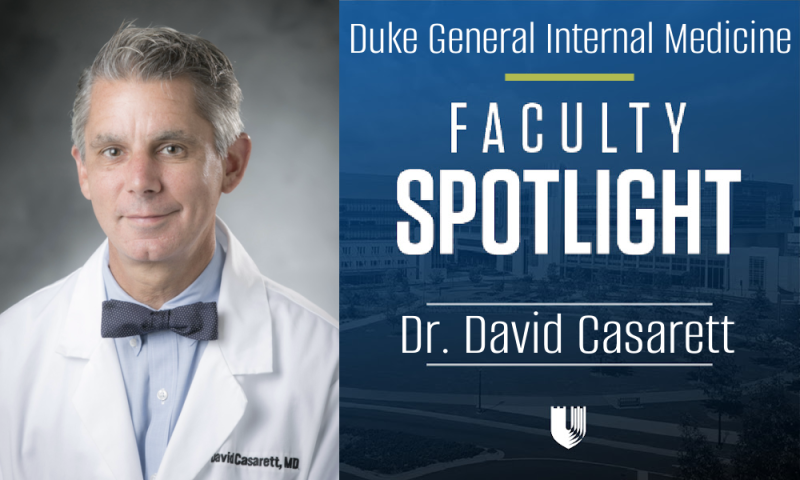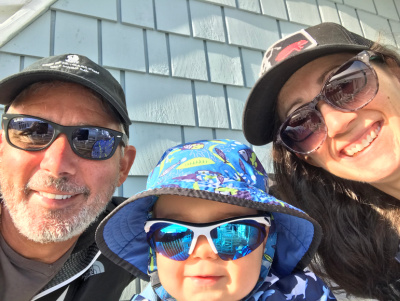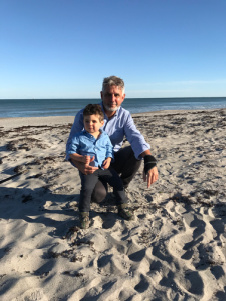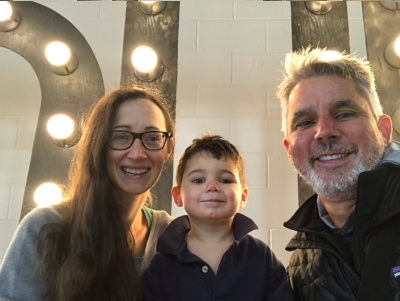
David Casarett, MD, joined Duke in September of 2016 and is the Chief of Palliative Care for Duke Health as well as the Director for the Duke Center for Palliative Care. Learn more about him in our interview below.
What brought you to Duke?
I "grew up" academically at the University of Pennsylvania. I did my palliative care fellowship there and worked my way up the academic ladder and was fortunate to receive a series of large competitive federal grants. But I was looking for a new challenge, and a chance to make a difference for patients through health system innovation. I really wanted to work in a space that had real impact on patients' lives and clinical care. When my friend Karen Steinhauser told me about this job, I knew it was what I was looking for. (As an added bonus, Karen also introduced me to my future wife, who was also influential in bringing me here.)

What are your interests in the field?
I'm very interested in what I've described as population-based approaches to palliative care--integrating some of the principles of the field into the fabric of health systems and communities. I think that approach is timely in general, and particularly for Duke Health, which is navigating a shift to value-based care. I'm also fascinated by innovative and somewhat offbeat approaches to solving clinical/administrative problems. For instance, sociology, the behavioral sciences, and design thinking are all informing our efforts to shape serious illness care in Duke Health. I'm really excited by the synergies that these diverse fields offer, and the way that they offer new insights and novel solutions.
How did you get in to this specific field?
I started out as medical ethicist, and did an ethics fellowship at the University of Chicago. But I realized quickly that a lot of medical ethics dilemmas were really the byproduct of poor palliative care. That discipline was just getting started back then--there weren't even accredited fellowships, or defined jobs. But it was something I knew I had to do. And, as a researcher, I was attracted by the wide open space that palliative care offered for research and innovation.
Can you tell us about your research?
We're leading a health system-wide initiative to encourage goals of care conversations, which is novel and highly innovative. In my time at Duke, this is the achievement that I'm most proud of. We're learning a lot about how to change these conversations and how those conversations, in turn, improve care.
What are your hobbies or interests outside of work?
I grew up surfing--or trying to, and being this close to the Carolina shore has got me back on my board. If I have a day free (rarely), it's not unusual for me to get up at 4 AM and be paddling out at my favorite break on Carolina Beach by 7. I'm not as quick as I used to be, and can't keep up with the youngsters, but I love hanging out with the dolphins and ospreys.
Any recent books you've read that you would like to share?
I recently finished Oliver Sacks' autobiography, On The Move. He was an amazing clinician and autodidact. Even his wildest mistakes and missteps are inspiring.
What is a fun fact about yourself?
After I left Penn, I took a couple of months (totally) off and backpacked my way through Southeast Asia. No itinerary, no schedule, and certainly no deadlines. I was fortunate to meet many amazing people--both local folks and fellows wanderers.
What is your favorite food?
Kanom Krok is a classic Southeast Asian street food that I've lived on for periods of my life. They're thick, creamy coconut milk pancakes that you can buy from street vendors in Laos, Thailand, Vietnam, and Cambodia. There are as many variations as there are countries and vendors, and each variation is a treat.
What is your favorite restaurant?
Britt's Donuts in Carolina Beach--nothing powers an early morning surf session like a couple of Bobby's glazed donuts.